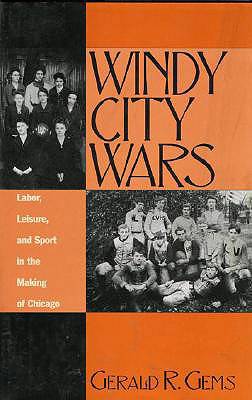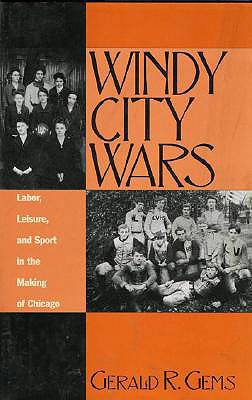
- Afhalen na 1 uur in een winkel met voorraad
- Gratis thuislevering in België vanaf € 30
- Ruim aanbod met 7 miljoen producten
- Afhalen na 1 uur in een winkel met voorraad
- Gratis thuislevering in België vanaf € 30
- Ruim aanbod met 7 miljoen producten
Zoeken
€ 85,45
+ 170 punten
Omschrijving
Windy City Wars traces how the assimilation process of various ethnic groups in Chicago was facilitated by participation in sports from 1830-1940. Gems analyzes how factors of religion, social class, politics, and ethnicity played out in the context of the populations of Native Americans, African Americans, Anglos, Northern, Southern, and Eastern Europeans. Arguing that sport was (and is) one of the few areas of common interest in a city often torn by ethnic, racial, and political strife, Gems examines the process by which it came to serve as a new cultural bond among diverse groups. By 1940, the interest in sport and its American forms pervaded society, but held particular meaning for Chicago's population because of the special history and traditions of sport in the city. Windy City Wars is a fascinating case study of the development of a sports culture, its relationship to other forms of culture, and, ultimately, its important influence on the functioning of society.
Specificaties
Betrokkenen
- Auteur(s):
- Uitgeverij:
Inhoud
- Aantal bladzijden:
- 280
- Taal:
- Engels
- Reeks:
- Reeksnummer:
- nr. 8
Eigenschappen
- Productcode (EAN):
- 9780810833050
- Verschijningsdatum:
- 30/10/1997
- Uitvoering:
- Hardcover
- Formaat:
- Genaaid
- Afmetingen:
- 147 mm x 224 mm
- Gewicht:
- 449 g

Alleen bij Standaard Boekhandel
+ 170 punten op je klantenkaart van Standaard Boekhandel
Beoordelingen
We publiceren alleen reviews die voldoen aan de voorwaarden voor reviews. Bekijk onze voorwaarden voor reviews.











